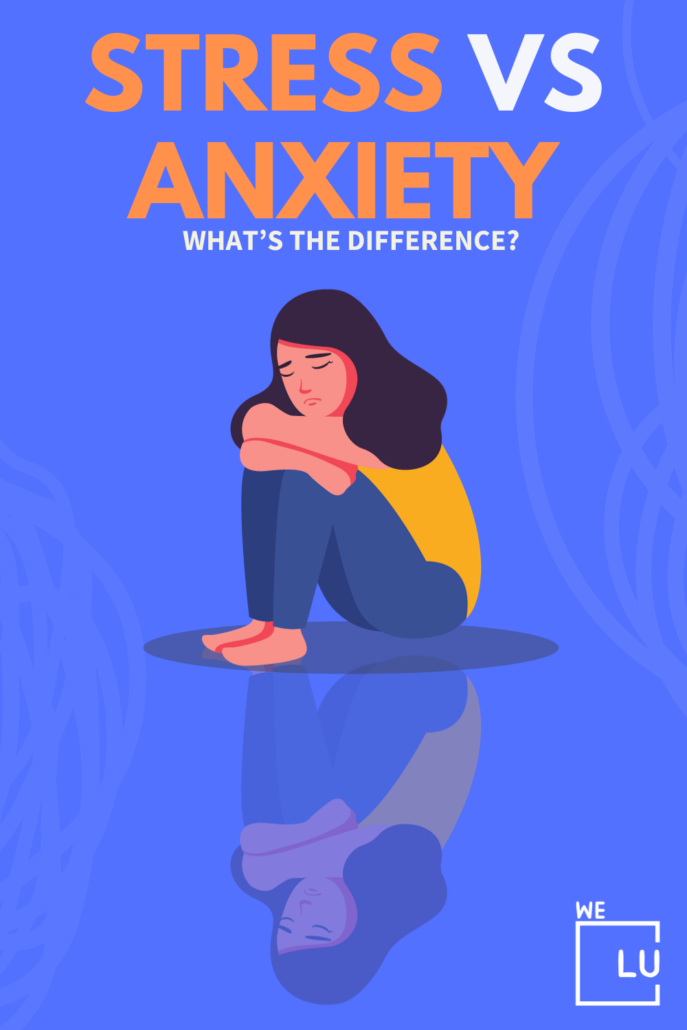Stress vs Anxiety
Stress results from demands on your mind or body, often arising from various frustrating or anxiety-inducing events or situations.
Anxiety, on the other hand, encompasses feelings of fear, worry, or unease and can manifest with or without an apparent trigger, often sharing similar symptoms with stress.
It’s normal to feel stressed and anxious sometimes, and it can even serve as motivation. But stress and anxiety that don’t go away can get in the way of daily life and hurt your mental and physical health. We will talk about the differences between stress and anxiety, as well as how to get help for better management.
What are the Differences in Symptoms?
The symptoms of stress and anxiety share significant overlap, making it sometimes challenging to distinguish between the two. However, there are subtle differences to consider:
Stress Symptoms:
- Response to Specific Events: Stress often arises as a reaction to specific situations or events, such as a looming deadline or a job interview.
- Motivational: In moderate amounts, stress can be a motivating factor, encouraging individuals to meet challenges and achieve tasks.
- Physical Symptoms: Stress may lead to physical symptoms like headaches, muscle tension, and an increased heart rate. It can also cause digestive issues, such as stomach discomfort or diarrhea.
Anxiety Symptoms:
- Generalized Worry: Anxiety involves excessive and generalized worry about various aspects of life. It may not have a clear trigger or cause.
- Chronic Nature: Unlike stress, anxiety can be established and persist even when there’s no specific external stressor.
- Emotional and Cognitive Symptoms: Anxiety often comes with emotional symptoms, including constant unease and apprehension. Cognitive symptoms may involve racing thoughts, difficulty concentrating, and anticipation of adverse events.
- Physical Symptoms: While stress can lead to physical symptoms, anxiety might cause a broader range of physical manifestations, including trembling, sweating, and shortness of breath. Panic attacks are also a hallmark of anxiety disorders.
To sum up, stress is generally a reaction to certain things that cause stress and can sometimes be motivating. On the other hand, anxiety is more widespread, lasts longer, and is linked to a broader range of mental and emotional symptoms. It’s important to remember that long-term stress can cause anxiety, and long-term anxiety can cause more stress, making the difference between the two less clear. Getting help from a mental health worker can help you deal with both conditions better if you’re having trouble with them.
How to Tell Apart Stress From Anxiety?
It can be hard to tell the difference between worry and anxiety. Stress usually happens because of certain events or situations and drives people to take action. The stress goes away when the stressful situation ends. Anxiety, on the other hand, includes fear and general unease that doesn’t go away after a specific event. Both depression and anxiety can cause similar physical symptoms, but anxiety can lead to panic attacks and a constant feeling of being on edge.
Here’s a table about their Differences:
| Characteristic | Stress | Anxiety |
|---|---|---|
| Typical Trigger | Specific events or situations | This may include panic attacks |
| Duration | Often short-term, tied to stressors | It may require ongoing coping skills |
| Nature | Reaction to external pressures | Generalized, chronic apprehension |
| Physical Symptoms | Similar, e.g., muscle tension | May include panic attacks |
| Psychological Symptoms | Worry tied to stressor resolution | Chronic, pervasive worry |
| Response to Stressors | Motivation to resolve the issue | Tendency to exaggerate concerns |
| Impact on Daily Life | Often manageable | May interfere with daily functioning |
| Management Strategies | May dissipate as stressor resolves | May dissipate as the stressor resolves |
Do You Have Anxiety?
Some people have trouble telling the difference between stress and anxiety. This test might help you figure it out.

Skip To:
Learn More:
- High Functioning Anxiety Symptoms, Causes, & Treatment. What Is High-Functioning Anxiety?
- Learn the Different Types of Anxiety. 6 Types of Anxiety Disorders. Symptoms and Medications for the Different Types of Anxiety.
- Performance Anxiety, Causes, Symptoms, and Treatment. Male Performance Anxiety Solutions.
- Wellbutrin for Anxiety. What You Need to Know. Does Wellbutrin Help with Anxiety?
- Prozac vs Zoloft, What’s the Difference for my Anxiety? Difference Between Zoloft and Prozac. Switching From Prozac to Zoloft.
- Determine the Best Time of Day to Take Zoloft for Anxiety. How Long Does It Take for Zoloft to Work?
- Quick & Easy 3-Minute High-Functioning Anxiety Test
Get Help. Get Better. Get Your Life Back.
Searching for Accredited Dual Diagnosis Mental Health Centers Near You?
Even if therapy failed previously, or are in the middle of a difficult crisis, we stand ready to support you. Our trusted behavioral health specialists will not give up on you. When you feel ready or just want someone to speak to about counseling alternatives to change your life call us. Even if we cannot assist you, we will lead you to wherever you can get support. There is no obligation. Call our hotline today.
FREE 24/7 Dual Diagnosis Mental Health Services Hotline